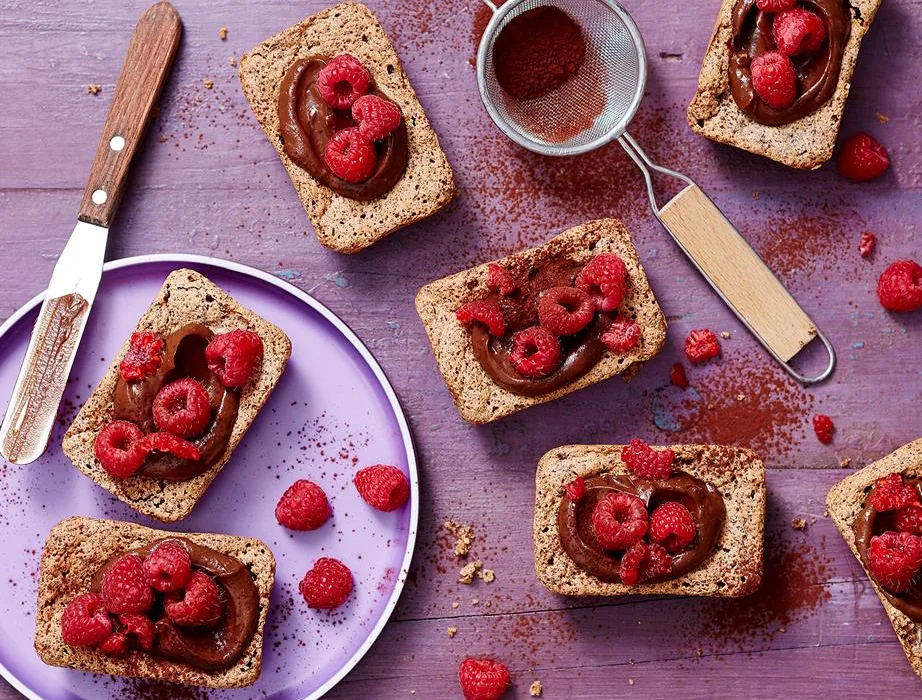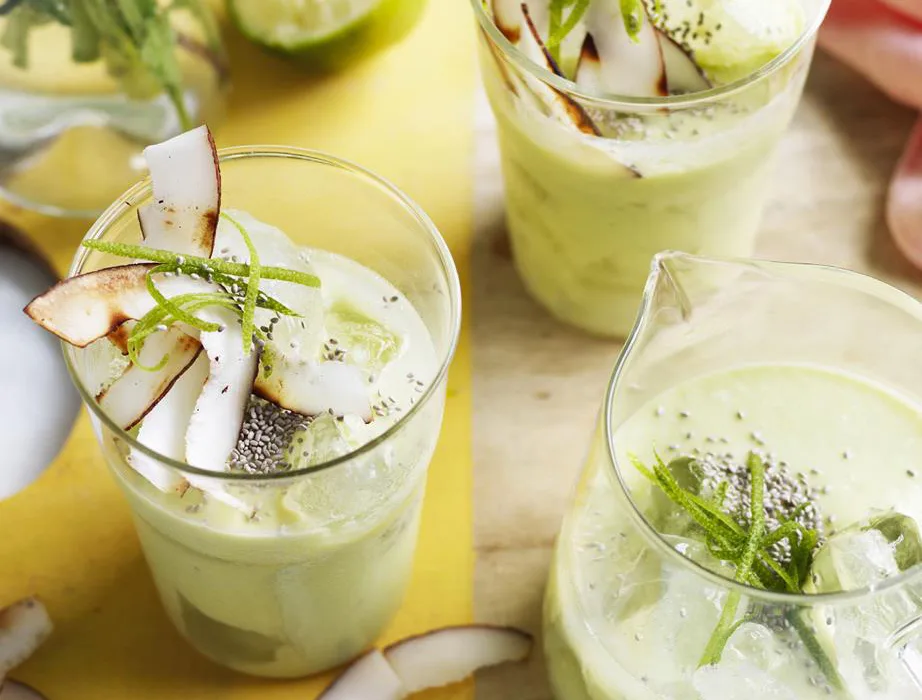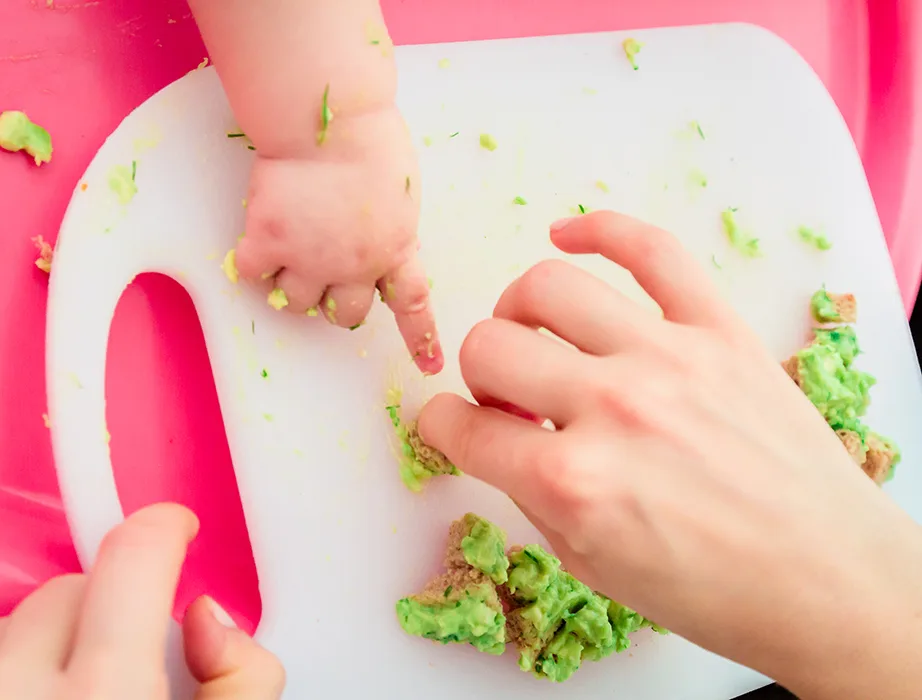It’s safe to say that Australians have a serious love affair with avocados — if we’re not spreading it on toast, we’re enjoying it on a café-style burger, or even drinking it in a smoothie.
Since smashing its way into the hearts of a nation, many myths have circulated about the humble avocado, some claiming the green beauty isn’t as healthy as it seems, others boxing avocado into savoury only territory.
Considering avocados popularity isn’t set to shake anytime soon, we decided to set the record straight and debunk seven of the most common myths about avocados.
MYTH: Avocados shouldn’t be used in desserts
Thanks to its green hue and savoury flavour, avocados are often confused for a vegetable when they’re actually a fruit!
This confusion means that avocados are almost always ruled out of sweet treat recipes; however, avocado’s creamy texture is brilliant for making sumptuous desserts like brownies and velvety mousse. Swapping eggs for avocado in some of your favourite dessert recipes, like a decadent chocolate cake, can also save you the hassle of whipping, cooking and pre-treating.
The savoury flavour of avocado also pairs excellently with rich sugars like honey, agave and maple syrup, meaning your rich desserts will strike the perfect balance every time.

These flourless chocolate cakes with avocado icing are a great way to satisfy your sweet tooth in a healthy way.
(Image: Women’s Weekly Food)MYTH: You can’t eat avocados with green skin
An overly green avocado indicates that the delicious fruit is not ripe enough to eat, right? Well, almost.
A green Hass avocado — the most common avocado variety in Australia — means that it is still ripening. The Hass variety is best enjoyed when the outer skin turns a purple black colour and the flesh feels slightly soft to the touch.
However, the Shepard avocado — available February to April — is always green, even when ripe! The colour and smooth, glossy skin is what sets the variety apart from the Hass. Boasting a more nutty flavour and buttery texture, Shepard avocados are best enjoyed sliced in salads or diced through pasta.
MYTH: Avocados are fattening
They might be relatively high in fat, but avocados are rich in healthy fats. In fact, avocados are the only fruit apart from olives that contain monosaturated fats, an important type of fat that can help you adsorb essential fat-soluble nutrients like vitamin E.
What’s even better, the healthy fats found in avocados can help to reduce your risk of developing type 2 diabetes, maintain heart health, promote healthy skin and even reduce high cholesterol levels.
Getting in your daily dose of these healthy fats is as easy as spreading a little avocado on your morning toast, but to take your avocado intake to the next level, try using avocado as a pasta sauce or even add some to your breakfast smoothie.

Get in your daily dose of healthy fats by adding a little avocado to your morning smoothie.
(Image: Women’s Weekly Food)MYTH: You can’t eat avocados everyday
Too much of a good thing can be a bad thing and yes, this can be said about avocados. As they are high in fat and calories, eating a whole avocado a day can actually contribute to up to 20 per cent of some peoples caloric intake. This doesn’t mean you have to wave goodbye to your daily avo intake, it just means you have to enjoy it in moderation to really reap the benefits.
Eating one serving (50g) of avocado a day is a great way to keep your immune system fighting fit, boost energy levels and even support healthy skin. The reason: avocados are packed with a unique combination of vitamins and minerals like fibre, niacin, potassium and vitamins C, B5, E and K.
The glorious green fruit can also boost the nutrition of other healthy foods. Just adding a little avocado to your salad can increase your ability to absorb goodies from other ingredients like tomatoes and carrots.
MYTH: Avocados aren’t baby friendly
Due to its high fat content, it is often thought that avocados are not a suitable first food for babies, however it’s quite the opposite.
With their soft, creamy texture, mild flavour and impressive nutrient composition, avocados are actually a great first food for bubs. The vitamins and minerals found in a single serve of avocado (50g) can assist with infant growth and development, brain function, immunity and the absorption of iron.
Avocados are also great for pregnant mums as they’re a source of folate and B vitamins, two nutrients that can help support a healthy pregnancy and symptoms of fatigue.

Mashed avocado is a great first food for little bubs.
(Image: Getty Images)MYTH: Microwaving an unripe avocado will make it ready to eat
It was a hack that surfaced a few years ago — smashing an unripe avocado and popping it into the microwave for a few minutes until it’s soft and tender.
While the hack certainly makes an avocado feel ripe, microwaving an unripe avocado doesn’t actually ripen it. Even though the texture might be right, your avocado will still taste unripe.
The best way to speed up the ripening process is by placing an avocado in a brown paper bag with an apple and banana for a few days. The reason this process works it because avocados, apples and bananas all emit a gas call ‘ethylene’, responsible for ripening fruit. To maintain that ripeness, keep your avocado stored in the fridge for up to two to three days until you are ready to use.
FACT: Avocados are a great butter replacement when baking
There’s plenty of truth steeped in this myth as avocado’s creamy texture and healthy fats make them a surprisingly easy baking substitution.
Rather than using hundreds of grams of butter in your favourite pound cake recipe, try using a few avocados instead. The creamy fruit won’t compromise on your cake’s texture, will leave it tasting light and even turn your cake a pretty shade of green.
The beauty of using avocado instead of butter also means that you can transform some of your favourite baked goods into more dairy-free friendly, healthy options.

Forget the butter, this pound cake tastes ten times better with the addition of avocado.
(Image: Australian Avocados)Brought to you by Australian Avocados



